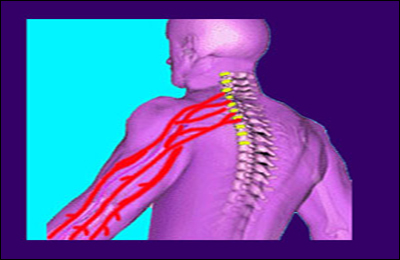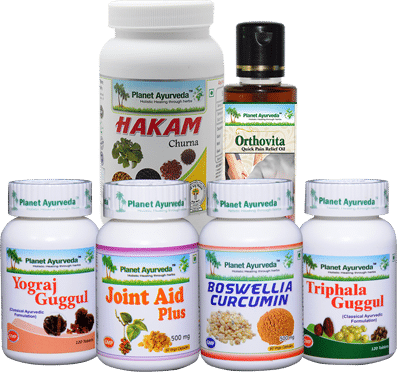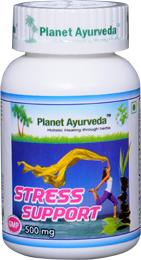How to Treat Pinched Nerve Naturally?

What is a Pinched Nerve?
Nerves send important messages throughout our body and extend from the brain and spinal cord. The warning sign for Pinched nerve is a pain. We should never ignore these symptoms. Pinched nerve damage may be severe or minor and cause long-lasting or temporary problems. Uncomfortable sensation, numbness, and pain occur on increased pressure leading to damage and irritation to the peripheral nerve. Any nerve can be affected and it may be associated with a neck injury or back pain.
Causes of Pinched Nerve
Common Causes of a Pinched Nerve:
- Herniated Disc : A bulging or slipped disc in the spine can press against nearby nerves.
- Repetitive Motions : Repeating the same movement over and over (like typing, lifting, or certain sports) can irritate and compress nerves.
- Poor Posture : Slouching or sitting for long periods, especially with improper alignment, can lead to nerve compression.
- Injury or Trauma : Accidents or sudden injuries can cause swelling or structural shifts that pinch nerves.
- Arthritis : Inflammation and bone spurs from arthritis can narrow spaces where nerves pass, leading to compression.
- Obesity : Excess weight can put added pressure on nerves, especially in the lower back and hips.
- Pregnancy : Hormonal changes and added weight during pregnancy can compress nerves, like the sciatic nerve.
- Tight Muscles : Overly tight muscles (e.g., from overuse or poor flexibility) can press on nearby nerves..
- Narrowing of the Spine (Spinal Stenosis) : A condition where the spinal canal narrows and compresses nerves within the spine.
- Cysts or Tumors : Rarely, growths near nerves can cause pressure and symptoms of a pinched nerve.
Symptoms of Pinched Nerve
The nerve is protected by a sheath called the myelin. When pressure is applied to a peripheral nerve, it can lead to:
-
- Irritation of the nerve, the myelin sheath, or both
- Loss of conduction of sensory signals to the brain
- A sense of numbness as a result
Symptoms and Progression
- The initial symptom is usually numbness, which may be temporary.
- If compression continues, it can cause:
- Inflammation
- Pain
- Sciatica
- Paresthesia — a tingling or prickling sensationParesthesia is often described as a “pins and needles” feeling.
Common Areas Associated with Nerve Compression
Common areas where nerve compression can occur are:-
- Cervical Spine – A pinched nerve in the neck can result in pain and tingling sensation in the spine. The pain can travel to arm or shoulder blade region.
- Carpal Tunnel – Injury to the median nerve at the wrist.
- Sciatic Nerve – In this pain travels from the lower back to the legs.
- Lateral Femoral Cutaneous Nerve (Meralgiaparesthetica) – It is caused by compression of the sensory nerve in the upper thigh. It can also be seen in Pregnancy due to the enlarged size of Uterus.
- Common Peroneal Nerve – In this injury occurs on crossing the legs at the knee.
- Ulnar Nerve at the Elbow – It is frequently caused by leaning on elbows while driving or sitting.
Diagnosis For Pinched Nerve
It can be diagnosed by the following methods:-
- Case History – Proper case history is taken by the Doctor about the location, duration,and severity of the condition. Depending upon the diagnosis, further tests may be required.
- Physical Examination – It is done to examine the area affected, and severity of the condition.
- Electromyography (EMG) – This is a nerve conduction study which tells about the extent of nerve damage and also helps as a diagnostic factor.
- MRI Scan – In case of involvement of neck Cervical spine) or spine (Lumbar spine), MRI scan helps.
- CT Scan – It is useful to detect the cause of the pinched nerve like – Arthritis, fracture or herniated disc. It also helps to make the diagnosis.
Ayurvedic Treatment for Pinched Nerve
Ayurveda helps to treat the disease with the proper lifestyle and using herbs. These herbs if taken in a proper manner are very effective. If taken in excess or less quantity it can harm our body system. So, always take the medicines as prescribed by Ayurvedic Doctors. One should follow the proper diet and healthy lifestyle along with herbal remedies, according to the Ayurveda.
Herbal Remedies for Pinched Nerve
Planet Ayurveda offers Cervical Spondylosis care pack for the treatment of pinched nerve. This is a very effective combination of medicines for treating pinched nerve as these medicines are 100 percent pure, natural, vegetarian , and free from any side effect that can be used safely. They are free from preservatives, additives, and chemicals and are formulated by MD Ayurveda doctors.
Dosage
- Yograj Guggul : 2 tablets two times a day with warm water, after meals.
- Hakam Churna : 1/2 tsp. two times a day with warm water, before meals.
- Joint Aid Plus : 2 capsules two times a day with warm water, after meals.
- Boswellia Curcumin : 1 capsule two times a day with warm water, after meals.
- Orthovita Oil : Apply warm oil locally and apply it before meals.
- Triphala Guggul : 1 tablet two times a day with warm water, after meals.
Products Description
1. Yograj Guggul
Herb Commiphora mukul is the main ingredient of this tablet. In cases of severe acute and chronic pain of Cervical Spondylosis and other forms of joint pains, these tablets can be used along with Joint Aid Plus. In combination with Hakam Churna and Yograj Guggul, they give better results in a stiff neck, stressed nerves and stiff joints.
2. Hakam Churna
This is prepared by using herbs like – Kalonji (Nigella sativa), Ajwain (Celery seeds) and Chandersoor (Lepidium sativum). It is very useful in cases of cervical and lower back pain, disc prolapse, strains, and sprains in muscles and tendons. In cases of neck stiffness, disc prolapse muscle rupture, lower back, and neck pain and muscle rupture, herbs used in this formulation hasten the healing.
3. Joint Aid Plus
It is prepared by using various herbs which are beneficial for a pinched nerve. Their action is quick and they do not have any side effect. They contain Commiphora mukul, ashwagandha and dry ginger. They are very useful in inflammatory Cervical Spondylosis, rheumatoid arthritis, pain, inflammation, stress, and help to relax the muscles around the back of neck. It helps to reduce swelling around the joints and give better results if used in combination with hakam churna and Yograj Guggul.
4. Boswellia Curcumin
It is a very potent medicine which is used in inflammatory disorders. The herbs it contains are shallaki (Boswellia serrata),curcumin (Curcuma longa). These are very helpful medicines which help to reduce the pain and heal the disease quickly. It is also used in morning stiffness and in arthritic pain. Mainly this medicine is used for pain purposes like joint pain,ankle pain,elbow pain, hip pain,swelling in fingers and many inflammatory disorders. It is the best combination of herbs which are best for all pain disorders like arthritis etc. it also promotes the proper blood circulation to the body which helps to subsides the inflammations. It is the best medicine for cervical spondylitis help to promote proper blood circulation and pain get relieved. Shallaki is one of the best medicines which help in subsiding the pain and inflammation.
5. Orthovita Oil
The oil as per given in our ancient books that oil is good Vatahar means it easily subsides the pain and inflammation. It is a medicated oil made with pure natural anti-inflammatory oils which gives excellent results in spondylitis. The oils are tail tarpon,kapoor,gandhpoom,para rani tail etc. it reduces the pain and inflammation by just applying over time. These collections of oils are very good in vatahara and are very useful for joint disorders. The ingredients are pure classical and are very classy in nature.
6. Triphala Guggul
Triphala Guggul is a classical polyherbal formulation by Planet Ayurveda prepared from the pure extract of herbs like haritaki (Terminalia chebula), Amalaki (Emblica officinalis), Vibhitaki (Terminalia bellerica), and Guggul (Commiphora mukul). The Triphala present in this formulation helps to balance the three doshas (Vata, Pitta, and Kapha) and the Guggul has Vata pacifying properties. Thus this formulation helps to reduce pain and swelling. It also helps to enhance digestion and remove toxins. Triphala guggul helps to clear the blockage of the channels, reduce inflammation and pain, and it has very effective results in cervical spondylosis.
Stress Support for Pinched Nerve
Stress Support
Mainly three herbs are used in stress support. They are –
- Brahmi (Bacopa Monnieri) – The herb ‘Brahmi’ is used in Ayurveda from old ages. It is used in lack of concentration, loss in memory and forgetfulness. It gives beneficial results in many mental illnesses, stress, anxiety, blood pressure, hallucinations, and epilepsy. Its regular use improves mental ability, cognition , increases the retention power and recollection.
- Ashwagandha(Withania Somnifera) –It is a unique herb and serves various functions. Its active components are Withanolides and Withaferin. It is known as Indian Ginseng. This herb acts as an anti-inflammatory, antistress, antitumor, hemopoietic, immunomodulatory and anti-anxiety agent. It is very useful to relieve stress and it enhances mental and physical stress naturally.
Ancient Verse About Ashwagandha

Reference –
The Bhavprakashnighantu with elaborated Hindi commentary by Padmashri Prof. K.C. Chunekar, Edited by Dr. G.S. Pandey – Verse 189-190, Edition of 1998 – Page no – 393-394.
Meaning –
Ashwagandha, Kusthgandhini, Hyahriya, Varda, BaldaVrahkarni,and Baji. Its two synonyms are Hyagandha and Bajigandha. It is astringent and bitter in taste, potency is hot, provides energy and enhances the spermatogenesis. It manages kapha, vata, leucoderma, and inflammation and has an anti-aging effect. It also manages emaciation problems.
- Tagar (Valeriana Wallichii) – This herb is very popular in the west and is commonly known as Valerian. It helps to fight depression and is very useful in stress and anxiety and it also relaxes muscles. It has a calming effect on the nervous system that’s why it is mainly used.





